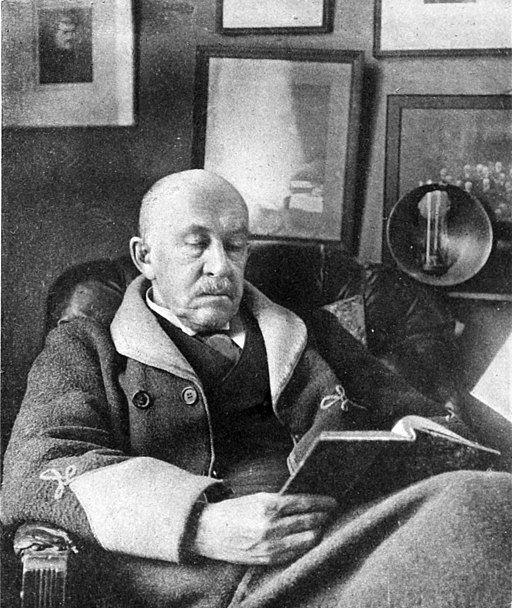Liberty Matters
Hayek on the Role of History in teaching Political and Economic Ideas

Phil Magness's post reminds me of something Fridrich Hayek wrote about the importance history (and I would add novels, films, and TV) plays in influencing people's political and economic ideas. I'm not sure if this was Sumner's intention in writing his histories of money, tariffs, and biographies of figures like Hamilton, that is to indirectly impart sound economic ideas to his students and readers. It would be interesting to know how many people read his more popular works like the biography of Alexander Hamilton (1890) or his Protectionism, the -ism which teaches that waste makes wealth (1885) and how they were reviewed in the press.
Given the popularity of sociology as a subject at universities and colleges since the 1960s I wonder what role this discipline has played in spreading ideas about economics and politics?
Here are two passages from Hayek's Introduction to Capitalism and the Historians (1954) which caught my attention:[73]
"The influence which the writers of history thus exercise on public opinion is probably more immediate and extensive than that of the political theorists who launch new ideas. It seems as though even such new ideas reach wider circles usually not in their abstract form but as the interpretations of particular events. The historian is in this respect at least one step nearer to direct power over public opinion than is the theorist." (p. 4 )"Most people, when being told that their political convictions have been affected by particular views on economic history, will answer that they never have been interested in it and never have read a book on the subject. This, however, does not mean that they do not, with the rest, regard as established facts many of the legends which at one time or another, have been given currency by writers on economic history. Although in the indirect and circuitous process by which new political ideas reach the general public the historian holds a key position, even he operates chiefly through many further relays. It is only at several removes that the picture which he provides becomes general property; it is via the novel and the news- paper, the cinema and political speeches, and ultimately the school and common talk that the ordinary person acquires his conceptions of history. But in the end even those who never read a book and probably have never heard the names of the historians whose views have influenced them come to see the past through their spectacles." (p. 8)
Endnotes
[73.] F. A. Hayek, "Introduction" to Capitalism and the Historians: Essays by T.S. Ashton, L.M. Hacker, W.H. Hutt, B. de Jouvenal. Edited and with an Introduction by F.A. Hayek (University of Chicago Press, 1974, 1st ed. 1954), pp. 3-29.
Copyright and Fair Use Statement
“Liberty Matters” is the copyright of Liberty Fund, Inc. This material is put on line to further the educational goals of Liberty Fund, Inc. These essays and responses may be quoted and otherwise used under “fair use” provisions for educational and academic purposes. To reprint these essays in course booklets requires the prior permission of Liberty Fund, Inc. Please contact oll@libertyfund.org if you have any questions.